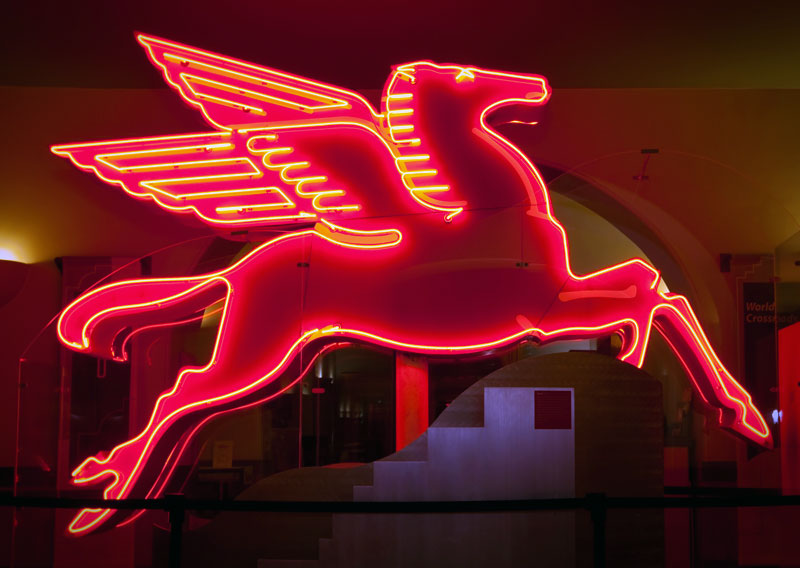Works for Wind Ensemble by Composer-in-Residence John Gibson
Today’s selection is the shortest concert piece I have ever written. It lasts anywhere from 1:38 to 1:44, depending on the skill of the players and the outlandish chutzpah of the conductor. It is played all the time, frequently successfully.
“Pegasus,” depicting the famous winged stallion, is a salute to Dallas and was written in 1993 as the Dallas Winds’ first foray into doing fanfares. Subsequently, they soon began to play fanfares in the lobby of the Meyerson before every concert. All those are newly written by composers from around the world.
“Pegasus,” is the first movement of a 3-movement suite I call “Spirit Sleeping,” and it honors former Dallas Winds maestro, Howard Dunn. It is about three mythical characters with the ability to fly. “Sweet Melamine,” the second character, is a damsel locked in a tower by her father to protect her from a family curse, until she is rescued by a brave, and, I am sure, blond-headed knight. Unfortunately, when she is taken from the tower, the curse kicks in and she turns into a dragon, eats the knight and burns the local village to the ground with her fiery breath. Bummer. The third character is the Greek mythological bird “Phoenix,” who occasionally burns up and then rises from his ashes to live again. There is only one Phoenix, thank goodness. He represents the sun.
I also wanted to do a fourth movement, “Icarus” who escapes with his father, Daedalus from the prison of the Labyrinth built by mean ‘ol King Minos of Crete and occupied by the Minotaur, a half-man, half-bull creature. While he was half-man and half-bull, I am all-man and all-bull. Anyway, Daedalus builds sets of wings for himself and Icarus from wax and bird feathers, and they fly out of the Labyrinth. However, as you know, Icarus flies too close to the sun, the wax holding his wings together melts and he plunges to his death. There is a lesson here for all of us, especially politicians, who will never learn. (Now that I think about it, I think I will begin work on “Icarus.”)
Couple of things about “Pegasus:” If it seems the woodwinds and xylophone-like instruments are playing the same thing over and over, it is not a clever trick of composition, they are playing the same thing over and over. Also, if you have really good headphones, or really big woofers and tweeters, you can hear the full 7-second decay of the last sound that is one of the things that makes the Meyerson the great place it is to perform.
Fasten you seat belts and take off with Pegasus!

